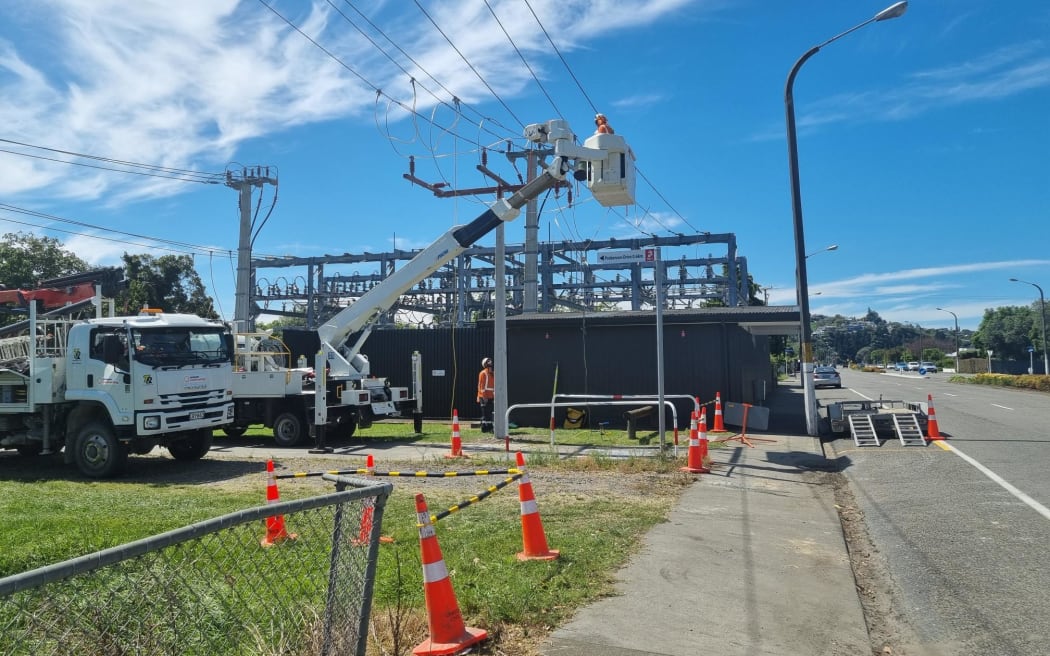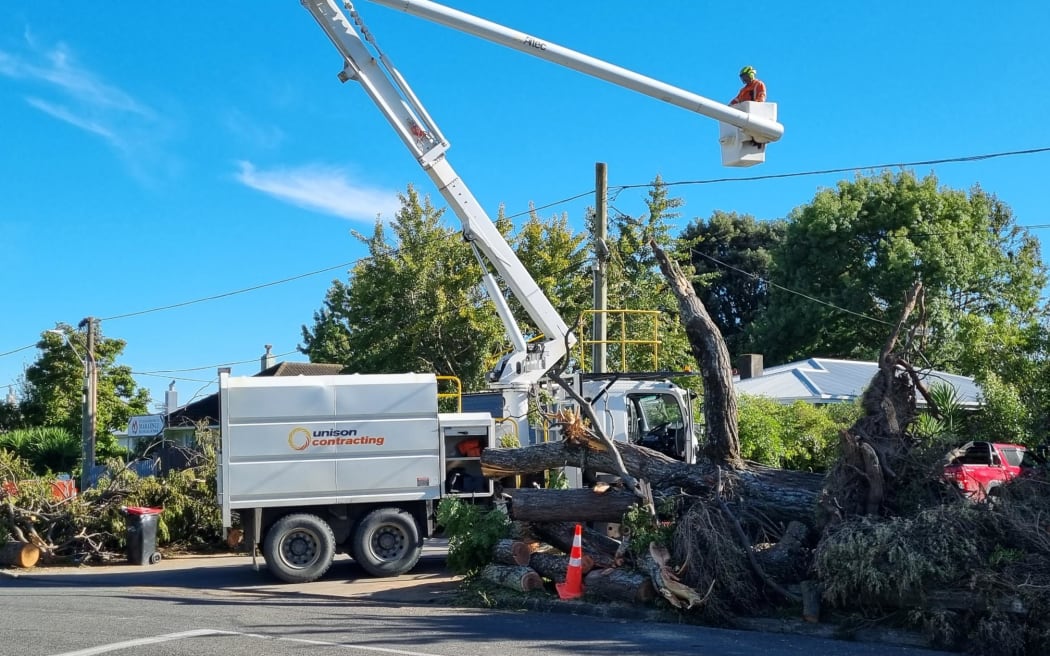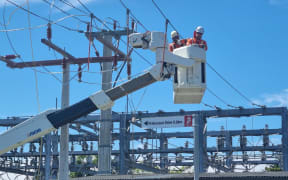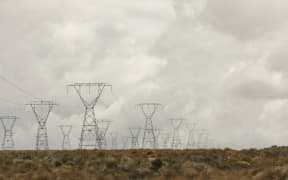
Electrical crews working to repair damaged lines at the Taradale Road switching yard in Hawke's Bay last month. Photo: RNZ / Lauren Crimp
Consumers may have to pick up the tab for electricity lines repairs after the extreme weather events of the past few months, unless the government considers other options, like tapping into funds set aside for climate emergencies.
The Electricity Networks Association has estimated the cost of repairs to lines damaged by Cyclone Gabrielle as being the equivalent of more than a year's worth of funding allocated for repairs.
The Commerce Commission regulates lines companies as a monopoly, meaning it has a fixed amount to spend each year on repairs.
The companies can ask the commission to lift that cap but the costs could then trickle down to consumers in higher prices.
The hydrogen and energy transition director at EY Oceania, Angela Ogier, said at the same time, lines companies needed to prioritise making the network more resilient to withstand the increasing and more severe weather events that will occur due to the effects of climate change.
"The rebuild expenditure that they're facing from Cyclone Gabrielle means it's eating into their ability to create greater resilience in their network, and that's something that the Electricity Networks Association has suggested, should be something that the Commerce Commission is flexible on, so that they can increase the cap on expenditure for the lines companies and allow them to create more resilient networks.
"However, again, that gets passed back to consumers, and my thought is, why is that the right thing that we should be doing?
"Given that electricity lines are so critical to decarbonisation, and preparing our economy to face climate change and ensuring that we've got resilience and adaptation of our networks as well as supporting decarbonisation, that means that you're potentially impeding the lines companies' ability to reach those goals."

Unison workers fixing power lines in Maraenui, in Napier, on 20 February 2023. Photo: RNZ / Tim Brown
Ogier said lines companies could defer planned work and resilience infrastructure to cover repair costs - but that would be kicking the can down the road, as that resilience work was still needed.
"In New Zealand, we've got the revenue from the emissions trading scheme, which has been hypothecated into the climate Emergency Response Fund, which is supposed to be allocated for resilience and adaptation expenditure," she said.
"Is there a case for us to open up that to allow for companies to bid into, to provide for these adaptation and resilience projects, so that with that, that burden of future proofing the network for adaptation, resilience, and greater electrification isn't falling directly on to consumers right now, when we've got a cost of living crisis and people have been hit by cyclones."
Ogier said the Electricity Networks Association has signalled it was keen to talk about other options with the commission, and the conversation would need to include government officials.





